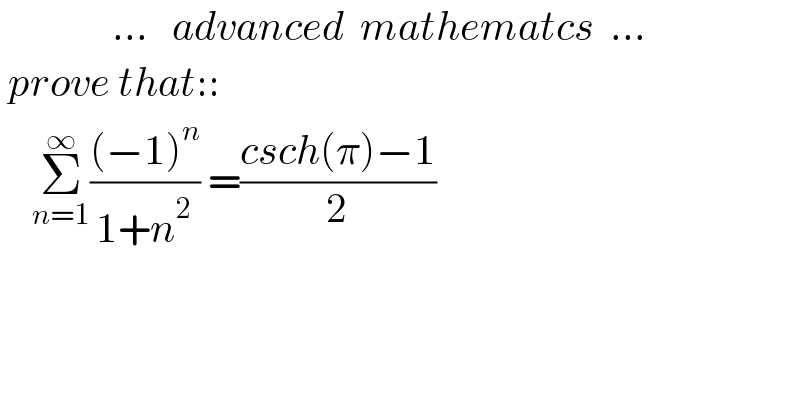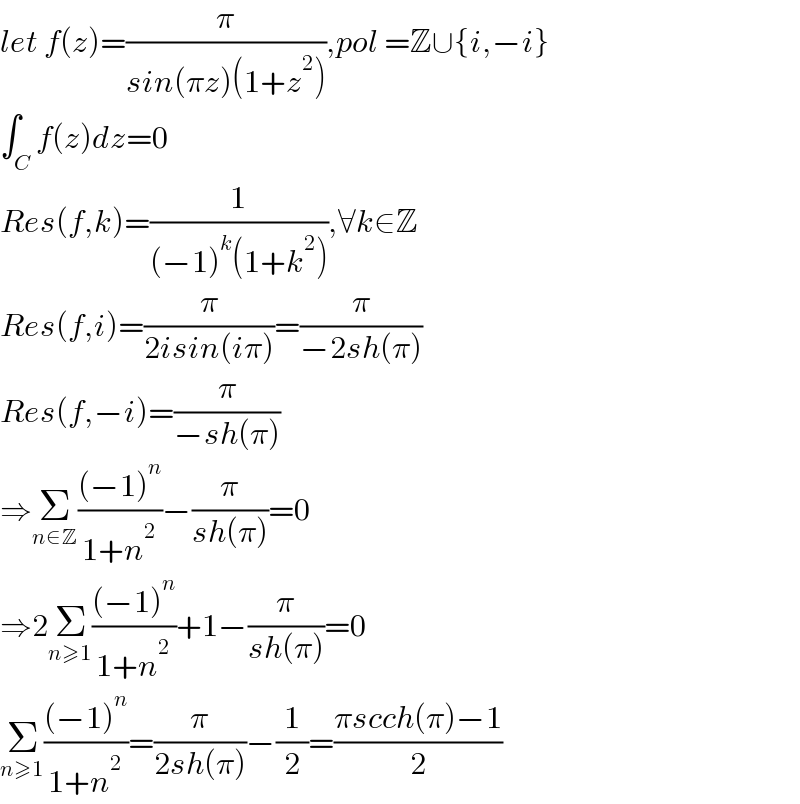
Question and Answers Forum
Question Number 130889 by mnjuly1970 last updated on 30/Jan/21

Answered by mindispower last updated on 30/Jan/21

Commented by mnjuly1970 last updated on 30/Jan/21

Commented by mindispower last updated on 30/Jan/21

| ||
Question and Answers Forum | ||
Question Number 130889 by mnjuly1970 last updated on 30/Jan/21 | ||
 | ||
Answered by mindispower last updated on 30/Jan/21 | ||
 | ||
| ||
Commented by mnjuly1970 last updated on 30/Jan/21 | ||
 | ||
Commented by mindispower last updated on 30/Jan/21 | ||
 | ||